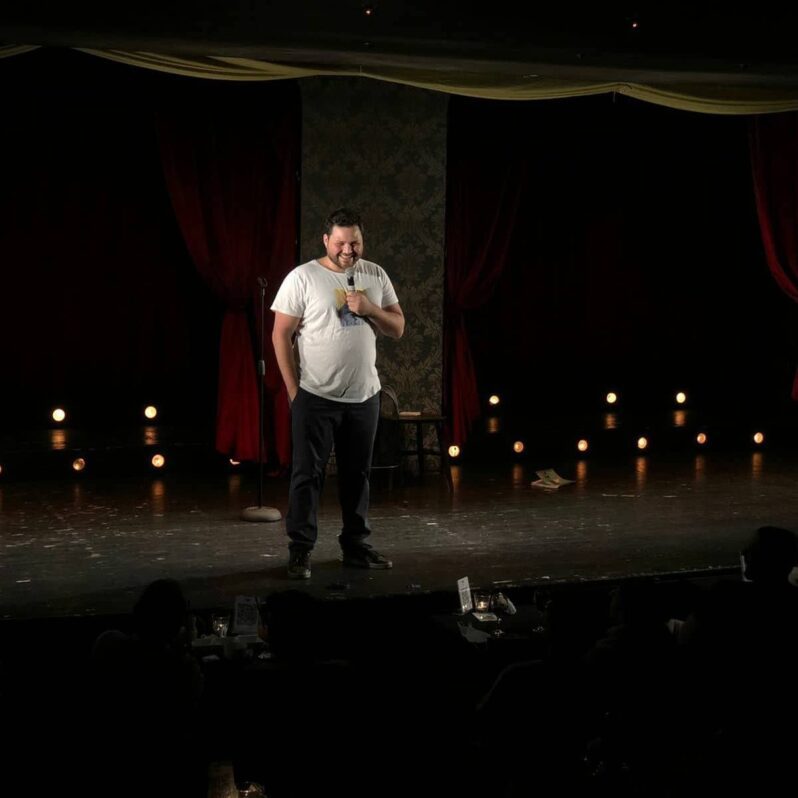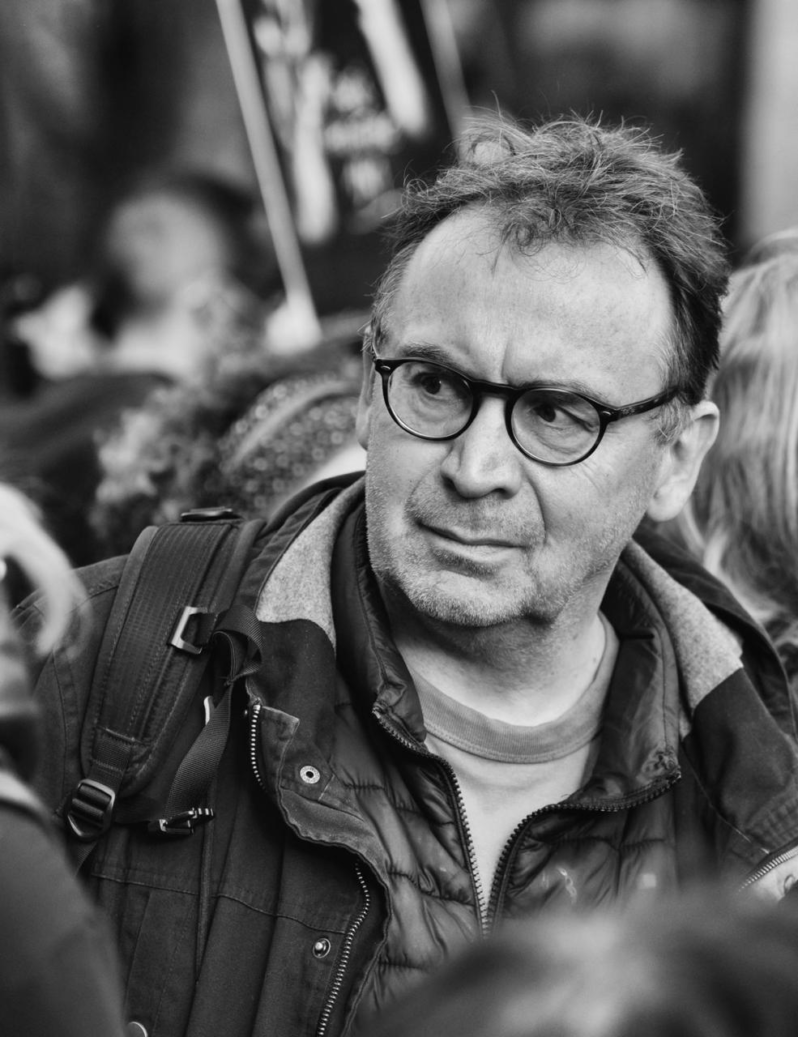Lebanon: Comedian Arrested for Critical Jokes.. Escalating Attacks on Free Expression

(Beirut, August 31, 2023) – Lebanese authorities’ arrest and investigation of prominent comedian Nour Hajjar, solely in retaliation for his jokes, represents a new escalation in Lebanon’s crackdown on public criticism, the Coalition to Defend Freedom of Expression in Lebanon said today.
Lebanese judicial authorities should refrain from bringing charges against Hajjar, and others, prosecuted merely for peacefully expressing their opinions, and stop using insult and defamation laws to limit criticism of the country’s political, religious, or military authorities.
“Comedy has an important social function and our comedians should be granted the widest legal protection, especially when they are criticizing public and religious authorities or practices, in a country ruled by legal impunity,” said Ghida Frangieh, head of litigation at The Legal Agenda.
Lebanon’s prosecutorial judges have investigated Hajjar in relation to two separate cases in the last week. On August 25, Lebanon’s Military Prosecution summoned him for interrogation at the Military Police headquarters in al-Rihannieh, southeast of Beirut, in response to a joke he had made on stage about Lebanese army soldiers taking up second jobs as delivery drivers due to the economic crisis and the devaluation of their salaries in Lebanese pounds. Following his interrogation, Hajjar was temporarily detained and released 11 hours later, only to be summoned again on August 29 to finalize the paperwork for his release.
On August 29, as he was leaving the Military Police headquarters, officers belonging to the Internal Security Forces’ (ISF) Criminal Investigations Division arrested him, in relation to a claim submitted against him by a leading member of Dar al-Fatwa, Lebanon’s highest Muslim Sunni religious authority, Hajjar’s lawyer told the Coalition. Dar al-Fatwa claimed that a comedy sketch that Hajjar performed on stage in 2018 was “an insult to Islam, Muslims and endangers civil peace in the country.” According to Article 10 of the Lebanese Code of Criminal Procedures, the statute of limitation for prosecuting such acts is limited to three years and, according to legal experts, had therefore expired at the time of Hajjar’s arrest.
Upon the orders of Lebanon’s top prosecutor Ghassan Oueidat, officers then took Hajjar, without informing his lawyer, to the division’s headquarters at the Justice Ministry in Beirut, where they interrogated him for several hours. Following the interrogation, Hajjar was temporarily detained and only released later that evening, after dozens of protesters gathered outside the ministry calling for his release.
Hajjar’s lawyer was able to attend both interrogations, and the two reports filed against him currently remain pending.
Hajjar’s arrest is part of an escalation in Lebanese authorities’ crackdown on critical public speech, amid a crushing economic crisis that has impoverished the majority of the population. In 2023 alone, Lebanese authorities have summoned journalists, lawyers, teachers, and now a comedian, for merely criticizing the actions of government and public officials. In the meantime, Lebanese authorities have failed to make any progress on the implementation of crucial economic, financial, and justice reforms. In 2022, Lebanon’s Military Court convicted another comedian, Shaden Fakih, of “harming the reputation of the ISF” and “insulting its members”, and sentenced her to pay a fine in response to a recorded prank call she had made to the ISF and later posted online.
Lebanon’s constitution guarantees freedom of expression “within the limits established by law,” but the Criminal Code also imposes sentences of up to three years for insulting religious rituals. The Military Code of Justice punishes insulting the flag or army with up to three years in prison. Lebanon’s insult and defamation provisions fail to meet international human rights standards and unduly restrict the right to freedom of expression.
Judicial authorities should drop criminal charges for peaceful speech, and parliament should urgently repeal laws that criminalize blasphemy, defamation, insults to religion, or criticism of political, religious, or military authorities. Civilians should not be tried by military courts. In no case should authorities detain individuals for peaceful criticism. Public prosecutors and security agencies should refrain from summoning people for investigations for exercising their right to freedom of expression. The authorities should also refrain from exceeding their jurisdiction by pressuring defendants to remove allegedly offending content or to sign pledges before they have had a fair trial.
The United Nations Human Rights Committee, which interprets the International Covenant on Civil and Political Rights, which Lebanon ratified in 1972, has held that “harassment, intimidation or stigmatization of a person, including arrest, detention, trial or imprisonment for reasons of the opinions they may hold, constitutes a violation”. The Committee has also stated that laws prohibiting displays of lack of respect for a religion or other belief system, including blasphemy laws, are incompatible with the Covenant.
“Nour Hajjar’s arrest is the latest example of how Lebanon’s authorities are instrumentalizing the criminal insult and defamation laws to intimidate and harass their critics and to stifle freedom of expression in the country,” said Aya Majzoub, deputy Middle East and North Africa director at Amnesty International. “Parliament should urgently abolish all laws that criminalize insults and replace defamation articles with new civil provisions.”
Signatories:
Amnesty International
Alternative Media Syndicate
DARAJ Media
Human Rights Watch
International Commission of Jurists (ICJ)
Lebanese Association for Democratic Elections (LADE)
Legal Agenda
Maharat Foundation
Media Association for Peace (MAP)
MENA Rights Group
Samir Kassir Foundation
SEEDS for Legal Initiatives
Social Media Exchange (SMEX)
The Lebanese Center for Human Rights (CLDH)



